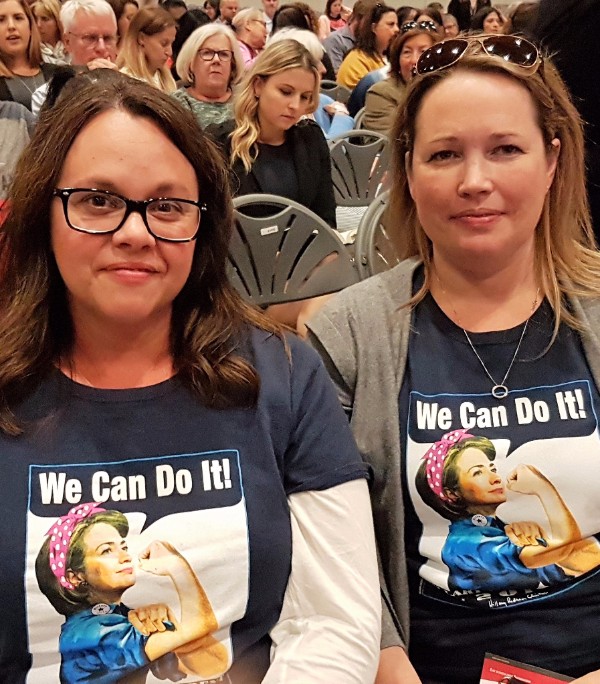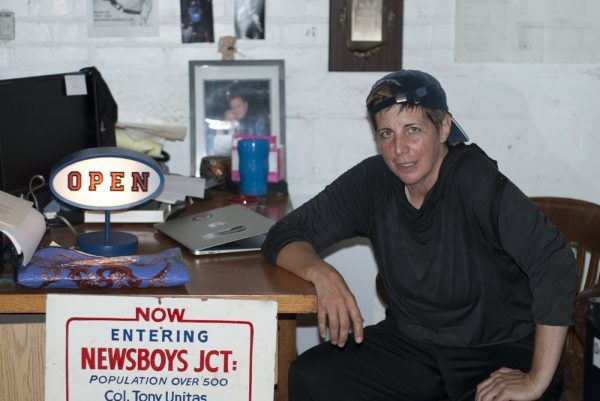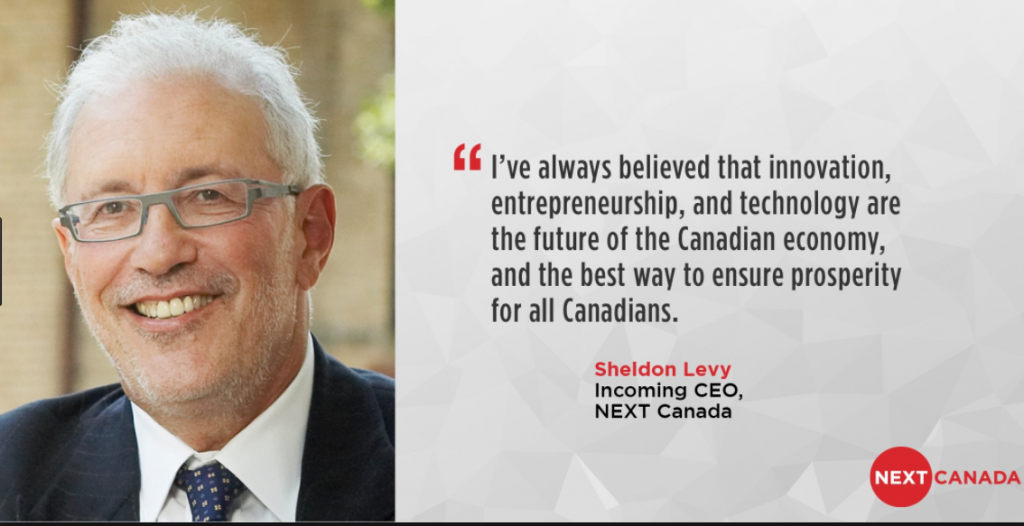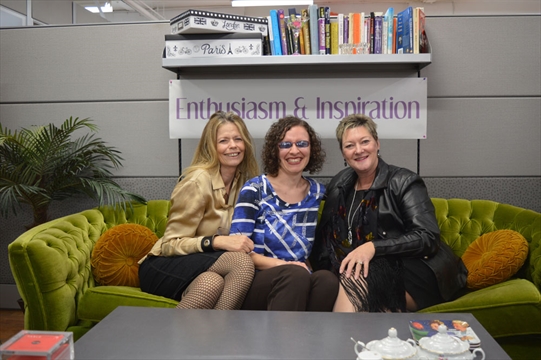The post LIISBETH DISPATCH #54 appeared first on LiisBeth.
]]>
Athelstan Spilhaus Comic Strip, Illustrator: Gene Fawcett
PK’S VIEWPOINT
On a hot summer July evening, a few members of the LiisBeth team (Lana, Geraldine, Champagne) and I went to see a screening of The Experimental City, a 2017 documentary about the Minnesota Experimental City (MXC) project.
The MXC was a 1960s technology-led city-building project that sought to solve urban problems of the day (excessive waste, pollution, automobile congestion, lack of parks) by building a full-size Jetsons city on appropriated land from scratch, using the latest technology sourced from around the world.
Its lead visionary—engineer, futurist, comic strip author, and dean of the University of Minnesota’s Institute of Technology Athelstan Spilhaus—imagined a city with underground garbage recycling, lots of open parks, wilderness and farms, automatic highways, moving sidewalks, and waterless toilets. Fuelled by enthusiasm for the possibilities, a cadre of like-minded engineers, designers including geodesic dome inventor Buckminster Fuller, a newspaper publisher, futurists, politicians, and corporate leaders all decided take the techtopian idea from comic to concrete.
Despite years and significant spending on designs, plans, and site scouting, in the end the project never put a single shovel—or tree—in the ground.
We were interested in learning about the MXC because we are in the midst of planning our September 29 Feminist City Walk and Talk, an event dedicated to examining feminist approaches to city building.
Turns out watching the film was time well spent on several levels. The MXC story is not only a cautionary tale about techtopian projects in general. It is also a story about the limitations of patriarchal leadership styles.
When Product Trumps Process
The MXC plan was envisioned as an innovation experiment. Its unproven ideas girded by emerging technologies required a 60,000-square-foot sandbox and 250,000 real people living its experience in order to try things out, iterate, and try again until market-ready scale-up versions could be implemented elsewhere—for a handsome sum.
MXC was, essentially, a minimum viable product. Its citizens (in this case) were early-stage adopters. The play? To create new jobs and wealth for Minnesota by selling the experiment’s spinoff products and intellectual property (IP) that would arise out of the project. Partners and advocates included federal and state governments, the University of Minnesota, and the 3M corporation. The project’s all-male leaders were able to raise $250,000 from the US federal government and $670,000 (equivalent to $8.4 million today) from businesses to invest in the project plan.
It all sounded exciting and promising. There was just one problem: where to put it.
Eventually the group found a site—an unincorporated township in rural Minnesota with fewer than 2,500 residents (back-to-landers and rural folk). The assumption was that these residents would be pushovers and would be thrilled to see 60,000 acres of their pristine natural environment turned into a city of the future for a quarter of a million dollars. The pitch? Think of the jobs! Think of the economic development! Think of what we could learn! Think of the economic potential! Think of the profits!
By now, this top-down sell story should start to sound familiar, especially if you have been following Toronto’s Sidewalk Labs‘ (this time the study cost $50 million) city-building project spearheaded by Alphabet (Google’s parent company).
As you know, Minnesota’s Experimental City was never built. They didn’t even get close. Why? As the documentary so clearly points out, its leaders and advocates prioritized product over process. They assumed a “trust us, we got this” and “father knows best” stance that was off-putting. Most importantly, they overlooked Mary Parker Follet’s 1920s feminist management wisdom by adopting a “power over” (exert authority) approach versus “power to” (develop agency and capacity to act in others) combined with “power with” (acting as expert heroes instead of initiators and sustainers of a collective process).
They also forgot Margaret Mead’s timeless lesson: “Never doubt that a small group of thoughtful, committed citizens can change the world; indeed, it’s the only thing that ever has.” This applies not just to those with power and influence, but also to those with little else but just cause, a point of view, and determination.
And what if, as feminist management scholar CV Harquail suggests, we shifted the eye of these stormy projects from a focus on economic development to a focus on citizen care?
Today, 80 percent of North Americans and 55 percent of humanity worldwide live in cities. We need to embrace both product and process innovations to make cities livable, sustainable, and safe. However, a patriarchal, top-down, corporate sales–oriented process that puts technology and corporate interests first is unlikely to succeed.
Projects like these, which involve a complex and large set of inter-independent stakeholders, require a deep understanding of the role of power, agency, co-creation processes, and fair and equitable distribution of benefits. These are all things feminist leaders know a thing or two about.
Lana, Geraldine, Champagne and I stayed for the panel session that followed which featured accomplished tech entrepreneur and out spoken Sidewalk Labs critic Saadia Muzaffar, and Sidewalk Labs supporter, Ken Greenberg, the former Director of Urban Design and Architecture for the City Toronto, author of Toronto Reborn, and adviser to Sidewalk Labs Toronto.
Trying to keep an open mind, and putting aside the fireworks examples of mansplaining that occurred, the panel discussion only served to confirm our views.
Patriarchal leadership styles which, by the way, know no gender, is like kryptonite when it comes to complex, multi-stakeholder projects. Next time, we say we go lighter on the techno-determinists and engineers, and a little heavier on the feminist management scholars and leaders who are superstars at process.
WHAATT? TORONTO’S FIRST-EVER FEMINIST CITY WALK & TALK?! HOLD THE DATE!
Feminism has shifted mindsets about gender roles and made us more aware of the role that power and force of systems play in shaping our lives. But what role has feminism and feminists played in shaping our cities? Would would a feminist city look like? How would decisions and policies be made if feminist values and practices were incorporated? What would the Scotiabank Arena look like if it were designed by a feminist architect?
These are just some of the themes that will be explored during the Feminist City Walk & Talk coming up in Toronto on September 29 from 2:00PM to 5:30PM. Join Denise Pinto, expert guests, LiisBeth, and Jane’s Walk TO for this unique walk and talk on current feminist issues, city building, and alternative futures while exploring and learning about key sites where feminist history was made in Toronto.
THIS WEEK ON LIISBETH

Meet Victoria Claflin Woodhull, ca. 1866-1873, who was a feminist, serial entrepreneur, and US presidential candidate.
FIRST WOMAN TO RUN FOR PREZ
Was Hillary Clinton the first woman in the US to run for president? Nope.
That title belongs to badass suffragette leader Victoria Claflin Woodhull Martin (1838-1927). Woodhull was a serial entrepreneur, newspaper editor, Wall Street stock trader, public speaker, women’s rights reformer, and fortune teller. She had three husbands, two children (one of whom was disabled), and her feminism advocated for free love and socialism.
What can feminist entrepreneurs and aspiring women-identified politicians learn from Woodhull? Turns out, a lot.
This month on LiisBeth, check out new contributor Stephanie Newman’s truly fascinating piece on Woodhull from an entrepreneur’s perspective.
RISKY BUSINESS
Pramilla Ramdahani, Founder and CEO of Community Innovation Lab
Most startups don’t start off as high-growth enterprises. Growth is one goal, sure, but all businesses start from the bottom up. But bottom is a relative term. For abuse survivors and marginalized women, starting a business could mean working from a place of residual mental and physical effects of trauma, fear of publicity, possible ongoing threats, and little financial backing. But survivors also possess the much-needed entrepreneurial attributes of resilience, strength, and perseverance.
By 2020, 1,335 women, youth, senior entrepreneurs, and social entrepreneurs will have benefitted from initiatives at the Community Innovation Lab (Co-iLab).
What’s the Co-iLab difference? Participants are involved in the programming and design of the space. #cocreation
Michelle Davies spoke to Co-iLab’s founder Pramilla Ramdahani and reveals how Co-iLab is much more than an all-female accelerator. To get involved, or see if you’re a fit for The Refinery entrepreneurial program, check out the full story here.
EVERYTHING YOU WANTED TO KNOW ABOUT FEMINISM AND BUSINESS BUT WERE AFRAID TO ASK
CV Harquail’s new book, Feminism: A Key Idea for Business and Society, will get you to think differently about feminism’s relevance in business. But don’t just take our word for it—check out this review by Deloitte Professor in the Management of Growth Enterprises Dr. Barbara Orser. Orser has published over 100 academic and trade journals and knows the feminist entrepreneur space like a lioness knows the realities of the Savannah. She agrees it’s about time we have a book that succinctly explains why enterprises should be turning to feminist values and wisdom to transform business.
Read Orser’s review of the book here.
FEMINIST FREEBIE!
Be the first to comment (substantively) on Orser’s review of Feminism: A Key Idea for Business and Society and receive a gratitude copy.

NEW SUPPORTS FOR WOMEN-LED SOCIAL ENTERPRISES IN ONTARIO
Good news for women social entrepreneurs in Ontario! A new, unique program that will help diverse women-led social enterprises grow is set to launch in 2020. Read about the $3.6 million Canadian federal government announcement here.
The program endeavours to integrate Indigenous wisdom in its curriculum and approach. This is a first.
LIISBETH FIELD NOTES
MEET LIISBETH’S TWO INCREDIBLE NEW ADVISORY BOARD MEMBERS:
GERALDINE CAHILL & ANITA LI
Geraldine Cahill, LiisBeth Advisory Board Member 2019
We are delighted that Geraldine Cahill has joined the Liisbeth Advisory Board! Cahill is the Director of UpSocial Canada, a social innovation agency first launched in Barcelona in 2010. She is also the co-author of Social Innovation Generation: Fostering a Canadian Ecosystem for Systems Change and chair of the Jane’s Walk Steering Committee, an annual global festival celebrating local knowledge and community connection.
Born in Australia, Cahill completed a BA in Media Studies at RMIT University and a BA in Film and Television from the Victorian College of the Arts. Her first media love was radio; she produced current affairs and women’s sports programs over several years at 3CR before moving to Canada and supporting the launch of a non-profit online news site, The Real News Network.
We are also thrilled to announce that Anita Li, consultant and former director of communities at The Discourse, has also joined our Advisory Board!

Anita Li, LiisBeth Advisory Board Member 2019
Li is also editor-in-chief of The Other Wave, a website dedicated to covering media from a multicultural perspective. Prior to that, Li served as senior editor at Fusion and as news director at Complex. She’s also held reporting and editing positions at media outlets across North America, including Mashable, Toronto Star, The Globe and Mail, CBC, and CTV.
OUR AUGUST PLAYLIST: BOLD, BRAVE, UNAPOLOGETIC
Looking to discover feminist-leaning, female, trans, or queer-led bands? Not easy right? Turns out we see very little diversity represented on stages at live music venues. With initiatives like Gender Parity on Stage by Canadian Women Working in Music calling for music bookers to book 50 percent women-fronted bands, things may start to change for all women-identified genders that are under-represented on stage.
To help spotlight feminist bands, LiisBeth publishes playlists featuring tightly curated women-identified-led bands and singer/songwriters and songs that are blatantly about love, justice, and power.
Our latest August 2019 playlist serves up 10 songs by artists featured at this year’s Venus Fest, a feminist music festival created by Aerin Fogel that’s designed to showcase women-led, queer, and trans bands in Toronto.
FEMINIST FREEBIE!
Get your groove on and tell us what you think by commenting on the playlist here. First two people to leave a reply win two passes ($110 value) to Venus Fest in Toronto this September. #hellavalue
Photo Credit: Katherine Fung/The World
What is the definition of an enterprise?
According to the dictionary:
1. A project or undertaking that is especially difficult, complicated, or risky
2. Unit of economic organization or activity especially: a business organization
3. A systematic purposeful activity, i.e. digital media production is the main economic enterprise for visual artists
4. Or readiness to engage in daring or difficult action; showing initiative; being enterprising
What is a feminist enterprise?
All of the above along with express operational focus or mission related to social and gender justice.
So what is the feminist enterprise commons (FEC)?
A new online community where feminist entrepreneurs and changemakers who are building organizations, enterprises, or working on projects from around the globe can meet, share stories, tools, learnings, stress test new ideas, practices, source goods and services from each other, and above all, feel supported.
Why are we building it?
Elize Shirdel, feminist tech entrepreneur and long-time LiisBeth supporter, explains: “Feminism’s deep body of academic and grassroots work related to change-making and practice is an under-explored source of innovative ideas for founders and business leaders looking to truly advance social and gender justice. It’s great to finally have a place dedicated to exploring feminism in business plus learning about and sharing our experiences.”
The FEC will be a service provided to the LiisBeth community on a paid subscription basis. Stay tuned for more information in the next few weeks.
FEMINIST FREEBIE!
If you are on our list as a $10 monthly paying subscriber to LiisBeth by September 2019, you will be invited to receive a complimentary first three months!

Champagne Thomson (bottom left) and crew outside the public library in Peterborough, Ont., are bringing attention to the need for a new homeless shelter in their city.
IS HOMELESSNESS A FEMINIST ISSUE?
We think so. And it is not just a big-city issue either.
In a community of 78,777 where the housing vacancy rate is less than one percent, the rural city of Peterborough, Ont., struggles with establishing and funding shelters for those in need. Due to funding and location issues, the city recently closed its only barrier-free shelter on July 1, 2019. A temporary tent city was created to deal with the immediate need: a stop gap measure that is not ideal.
Few realize that women make up 50.1 percent of the under 16 homeless population in Canada, and 27.3 percent of the homeless population in Canada overall). These figures do not include women and women-identified people who experience temporary homelessness as a result of domestic violence.
Any entrepreneurial solutions to funding safe, barrier-free physical shelters out there? Let us know (email [email protected]). We would love to hear and write about them.
LIISBETH MAKES FEEDSPOT’S TOP 10 FEMINIST MAGAZINE LIST

Play the video below to hear the sound of LiisBeth tooting our horn because we were voted as one of the Top 10 Feminist Magazines, Publications & Ezines To Follow In 2019 by Feedspot, an online RSS feed reader.
The Best Feminist Magazines are chosen from thousands of feminist magazines on the web using search and social metrics. Readers subscribe to these websites because they are actively working to educate, inspire, and empower themselves with frequent updates and high-quality information. Data will be refreshed once a week.

***
If social and economic justice are important to you.
Help us SUPPORT, BUILD & GROW the feminist economy
We do this for YOU
Our readers, our community, our future.Every paid subscription helps us with grant applications, paying new contributors, and bringing these newsletters to your inbox.
We can’t do it without you.
Each online magazine refresh and newsletter takes a collective effort.
We have reached over 2,800 subscribers.
Less than 30 percent contribute financially.

“Rising high up on the heather-covered moorlands, seeping through our bogs, flowing down our streams and into our rivers and out onto the sandy strands of the rock-strewn Atlantic seaboard, are the old Celtic myths and stories…waiting to be reclaimed and re-visioned for the modern world.”
Aged 30, Sharon Blackie found herself weeping in the car park of the multinational corporation where she worked, wondering if this was what a nervous breakdown felt like. Somewhere along the line, she realized, she had lost herself—and so began her long journey back to authenticity, rootedness in place and belonging.
In this extraordinary book of myth, memoir, and modern-day mentors (from fashion designers to lawyers), Blackie faces the wasteland of Western culture, the repression of women, and the devastation of our planet. She boldly names the challenge: to reimagine women’s place in the world, and to rise up, firmly rooted in our own native landscapes and the powerful Celtic stories and wisdom which sprang from them.
“A haunting heroine’s journey for every woman who finds inspiration and solace in the natural world.” —Goodreads.com
“I love this book. Truly, it’s mind-blowing in the most profound and exhilarating sense. This is an anthem for all we could be, an essential book for this, the most critical of recent times. I sincerely hope every woman who can read is given one, and has the time and the space to read it.” –Manda Scott, author of Boudica and Into the Fire

Forbidden Fruit: Engaging an Indigenous Feminist Lens as an Neninaw Iskwew is a feminist-based memoir acknowledging that people are measured, categorized, and placed in a hierarchal order that is deeply influenced by discourses predicated upon social processes.
“Dr. McKay’s Indigenous feminism is about being aware that due to the colonial patriarchy that has seeped through Indigenous social and cultural systems, Indigenous women are positioned differently in economic, social, and political structures. Marlene masterfully uses her own life experiences to assert that colonialism and Indigenous cultures obscure the role of women in a way that continues both their marginalization and the binary of the princess/squaw.” —J Charlton Publishing
Marlene E. Mckay entered the teaching profession after working as a social worker/counsellor for about 15 years. She has four earned university degrees. Marlene’s education focuses on Indigenous feminism, social justice, anti-racist education, and as a Cree speaker herself, she has a deep commitment to Indigenous literacy. Her research is motivated by observing and experiencing marginalization. Dr. McKay asserts that subjugation is influenced by identity categories of race, class status, and gender. She further argues that one’s speech is used to categorize people. Dr. McKay has taught at the University of Saskatchewan and the University of Alberta.
AND FINALLY . . . IN CASE YOU MISSED IT!
- Not all equal voice call-outs are created equal. This National Observer piece highlights the stories of three women who were fired after raising concerns about racism in the women advocacy organization.
- Social procurement strategies can build inclusive local economies. Thinking about creating one? Check out this useful article here (written by PK Mutch and published in Local Love).
- Entrepreneurs can’t do it all. And we don’t do it alone. Incubators and accelerators are places where business startups meet, network, find funding opportunities and mentors, and more. Here are Startup Funding’s list of Top 31 Accelerators for women located in the US and abroad.
- Here is an opportunity for #womenintech in Toronto that we wanted to share. Toronto Tech Study aims to get a clear-headed read on the state of sexual harassment in the sector. Yes, it still happens. But how pervasive is it? You have to see the gap before you can figure out how to move past it. The Aperta Project is intended to help Toronto build a more inclusive tech sector in the #MeToo era. Do you have a story about sexual harassment in Toronto tech? Share your experience anonymously to this project and learn more here.
- Alberta hair salons are levelling the playing field by charging the same price for haircuts no matter the client’s gender. Check out this article that includes a seven-minute interview with Jennifer Storey, the owner of Adara Hair in Edmonton, who explains why her salon decided to become the first place in Edmonton to advertise gender-neutral pricing.
- Listen to an episode of LiisBeth’s favourite podcast, On Being, here. In this episode, host Krista Tippett chats with philosopher Jonathan Rowson, co-founder of the research platform Perspectiva, who believes the world’s major challenges stem from a crisis of perception and imagination. The episode focuses on the connection between our inner and outer worlds and how social change happens across “systems, souls, and society.”
That’s it for our August newsletter! Hate to drop the F-bomb, but fall will soon be here.
We will be back September 23 with more profiles and stories that may bring you joy or make you want to kick the ground!
If you do not currently support LiisBeth, we hope you will consider doing so. There are less than four feminist publications in Canada. We are the ONLY intersectional feminist publication in the world dedicated entirely to examining entrepreneurship and innovation via a feminist lens. We are one of only a few sources of income for feminist writers, academics, and grassroots thought leaders.
Also, remember, if you have a story tip, email us a [email protected]. We are currently accepting queries for December.
Enjoy the last few weeks of summer (or winter depending on where you live).
Blue skies either way,

The post LIISBETH DISPATCH #54 appeared first on LiisBeth.
]]>The post LiisBeth Dispatch #32 appeared first on LiisBeth.
]]>
VIEWPOINT
The Day Hillary Came to Town
Over 5,000 Canadian men and women, plus strong representation from Democrats Abroad came together on Sept. 28 at Exhibition Place in Toronto to hear Hillary Clinton talk about “What Really Happened” (also the title of her new book). The book tour based event started on a weird note with a 15-minute live musical performance by a tenor. But setting that aside, Clinton pleased the crowd, delivering inspiring one-liners, including “I’ve been called many things, but quitter is not one of them!” and “The only way to get sexism out of politics is to get more women into politics.” Each was followed by deafening cheers of support.
The crowd became more subdued as Clinton revealed new details about Russian election interference via twitter bots and artificial intelligence (AI) to help spread false news. What we have learned from this past election, she argued, other than that America is still not ready for a woman President, is that false news is now the most clear and present danger to our democracy — a system that depends on a well-informed citizenry.
And Clinton is right to have emphasized this point. AI is serious business.
Vinod Khosla, a 62-year-old billionaire American-Indian engineer and venture capitalist who now writes a popular blog on tech trends, told the 5000+ audience at Elevate Toronto on September 12 that the new weapon of mass destruction in the digital world will be AI. All nations are working hard to master its power. To bring the point home, Khosla reminded everyone that Russian President Vladimir Putin recently said, “Artificial intelligence is the future, not only for Russia, but for all humankind. It comes with colossal opportunities, but also threats that are difficult to predict. Whoever becomes the leader in this sphere will become the ruler of the world.”
That used to be said of nuclear bomb technology.
Last week, Gartner, a reputable American research and advisory firm providing information technology-related insight for business leaders, published its latest future trends report. It predicts that “By 2022, most people in mature economies will consume more false information than true information” and that in three years from now, “AI-driven creation of ‘counterfeit reality’ or fake content will outpace AI’s ability to detect it”. The forecaster also predicts that 50% of companies will be spending more per annum on bots and chatbot creations than traditional mobile apps.
Here at LiisBeth, we have written about how AI science, stewarded by men at this point, has serious gender implications to consider. Imagine a world where patriarchal responses to “If this, then ____”-based algorithms are so deeply encoded in systems of life on this planet that systemic issues they inadvertently create they might never be reversible. Microsoft’s Tay, the twitter bot that became so misogynistic and racist after 24 hours of “learning” from humans that it had to be quickly unplugged and put down before more damage could be done, is a good example. Luckily, Tay, considered an AI “toy”, was not driving cars or deciding who would be scheduled for work next week.
AI can make lives easier, reduce costs, and the technorati say it might create more jobs than it eliminates in the long run. But at what cost?

Back at the Clinton event, LiisBeth spoke with attendees Pamela Librasso and Sara Vause to find out why they were there. Both spoke about being awed by Clinton’s incredible career, her long-standing commitment to advancing women, and their deeply felt disappointment at the outcome (and continuing fallout from) the results of the U.S. election.
Librasso was so jacked up about Clinton potentially winning the election she flew down to be part of her last campaign rally… and she is a Canadian!
“Anyone who said her being a woman had nothing to do with her losing is absolutely wrong,” said Vause.
Clinton adds that anyone who believes false news spread by early-stage AI on social media in the form of twitter bots had nothing to do with it, is equally wrong.
The ongoing post-election inquiry by the U.S. House and Senate intelligence committees reveals disturbing facts that support Clinton’s views.
Most of the people attending the Clinton event were there to show their support and appreciation for this intelligent, fearless woman (no matter what your opinion of her politically might be) who built and earned an amazing, and not over yet, career.
Most left feeling that they just experienced another important wake-up call regarding AI.
Feminist thought leaders need to get serious about amping up their interrogation of this emerging technology. To quote Clinton, we need to “resist, persist, insist and enlist” to ensure we continue to advance gender equality, especially in a AI-weaponized world.
THIS WEEK ON LIISBETH

When a Catalyst Becomes an Inhibitor
There have already been a lot of news stories written about women’s advocacy organization Catalyst Canada’s recent decision to appoint yet another male bank CEO as the organization’s Chair of the Board. But we felt the need to weigh in too. Spoiler alert: It’s not just the optics that we need to consider. Find out more here.

Want Change? Put a Woman in a Ring on It! Part II
This week on LiisBeth, we publish part two of Savoy “Kapow” Howe’s story where she talks about running a trans-inclusive enterprise and her experience working with people with disabilities in the boxing ring.
Howe is the founder of the Toronto Newsgirls Boxing Club. On the subject of why we still need women-centred spaces, she says “I noticed that once I took my club out of a co-ed space we were renting, the women became, well, bigger. They took up more room. And became more of themselves.” Check out part one of her story here. Part two can be found here.
LIISBETH FIELD NOTES

Sheldon Levy on Advancing Women in Entrepreneurship
Sheldon Levy is a man of great accomplishment. His impact on Ryerson University and the city of Toronto is legendary. The Ontario Deputy Minister of Advanced Education and Skills Development (until Nov. 1) is the co-founder (along with Valerie Fox) of the top incubator in North America, the DMZ. He is the former president of Ryerson University. And he was recently named the new CEO of Next Canada, a startup incubator at the University of Toronto — one not known for the gender balance of its participants, mentors, lecturers or board.
LiisBeth had a chance to speak with Levy about what he thinks is necessary to increase the number of women participating in Canada’s accelerator and incubator spaces, including the one he now leads.
His answer: Change the climate, not the individual. He adds that based on his own observations, and to his dismay, many of these male-dominated environments are “not fun for women”. He added “We are not being honest about what the problem is.”
Hiding from this truth could be a contributing factor behind poor gender balance outcomes in incubator and accelerator spaces across Ontario. Even for Ryerson’s celebrated digital media zone, the data shows that women-led companies at DMZ currently add up to about 16% of all companies working in the 70 000 sq ft space. When you expand the count to include ALL women working in any role, in any startup, it increases to approximately 30%.
Liisbeth went on to ask Levy if he was a feminist. Levy replied, bemused, “I have not thought about it. I guess I would say I am just a person with my eyes open.”
Let’s see if having one’s eyes open is enough to make a dent in the previously reported on gender bias issues at Next Canada.

What’s the EFF?
We know that systemic barriers prevent the majority of people on the planet from participating fully in life on the planet, and from determining our collective future.
So what’s the good news?
In fact, today’s fast-growing number of entrepreneurial feminists are leading some of the most exciting transformations in our communities, the economy — and more importantly — our minds. It was time to bring them together as a community.
At this inaugural Entrepreneurial Feminist Forum, we will be connecting, exploring and learning about diverse feminist approaches to business design, product and service innovation, alternative success strategies, feminist metrics, and much more. The forum is designed as a feminist, inclusive event and features a lot of doing, not just talking!
Confirmed speakers already include Dori Tunstall, Dean of Design at OCAD University, Dr. Barbara Orser, University of Ottawa Professor and co-author of Feminine Capital, CV Harquail, PhD, Stephen M. Ross School of Business (NJ) Professor and Co-founder of Feminists at work, Kelly Diels, feminist marketing consultant and author plus many more who will be announced in the coming weeks!
We are still open for workshop proposals until Oct. 15. Check out the guidelines here.
Don’t miss this opportunity to learn about new tools, ideas, share your work, identify future collaboration opportunities, become inspired, and find out more about entrepreneurial feminism as a force for change.
Early bird tickets at $99 are limited ($125 per person afterward). Get them while you can. Here. Now! For more information visit www.feministforms.com. For those for whom price or any aspect of the event is a barrier please send us an email and we will find a way to accommodate! If you have questions, email [email protected].

Whoa! Canada’s First Women’s Chamber of Commerce?
Did you know that Women’s Chambers of Commerce organizations exist in many countries across the globe, except Canada?
Well, that’s about to change.
Last week, Heather Gamble, founder of Women on the Move, announced the creation of Canada’s first Women’s Chamber of Commerce. The new Chamber, due to launch officially on November 30th, will provide resources and advocate on behalf of women entrepreneurs in Ontario.
Ontario is the Canadian province without a Women’s Enterprise Centre.
If you would like to learn more about this initiative or want to become involved, consider attending their October 12 information session (this Thursday) from 6:30-8:30pm at Women on the Move, 2111 Dundas Street West, Toronto. To RSVP, click here.

Eve-Volution Inc. is Recognized as a Best For the World B Corp!
As you may know, LiisBeth Media is a division of Eve-Volution Inc., a three-year-old B-Corp-certified consulting and educational enterprise that focuses on helping advance gender equity and inclusion in the entrepreneurship and innovation space. Eve-Volution Inc. was recently recognized as one of 2017’s “Best for the World” B Corps due to our community impact scores! If you are interested in learning more about Eve-Volution Inc., visit www.eve-volution.com.
IN CASE YOU MISSED IT?
- Can you really empower a woman in India with a chicken? Read “The Myth of Women’s Empowerment” in emerging countries here.
- We have been enjoying Bitch Magazine’s series of six long-read articles on the topic of fragility. The latest one is entitled “I didn’t know how much I needed a woman President until it didn’t happen”, by Jessica Marie Johnson. You can read it here.
- The annual B Corporation Champions Retreat was held last week for the first time, and right here in Toronto. There are now over 200 B Corps! We wanted to give a shout out to Jeff Ward, founder of Animikki, also Ojibway, Metis, Thunderclap Boy of the Bear Clan with UK settler heritage for becoming the first Indigenous-owned B Corp in the world!Can
CAN’T MISS EVENTS
- Canadian Women in STEM. Saturday, Oct. 14, 10:00 AM-4:00 PM, 200-20 Toronto St., Suite 200, Toronto, ON. Presented by HerVolution. Register here.
- Emancipate Me. Emancipate This. Tuesday, Oct. 17, 6:30 PM-7:30 PM. Authors Vivek Shraya and Lauren McKeon discuss the face of racism, the anti-feminist movement, and their latest books, Even This Page Is White and F Bomb: Dispatches on the War of Feminism, , Toronto Reference Library, Toronto, ON. Free.
- FEMM Live. Saturday, Oct. 21, Fairmont Royal York, Toronto, ON. $137-$350. Register here. Speakers/performers include Margaret Trudeau, Vicki Saunders, Amber Mac, Paulette Senior, Heidi Allen, Maria Locker, Sandra Laronde, Kelly Lovell, Stephania Varalli, Susan Howson, Joy Foster, Jessica Pheonix & more!
-
Entrepreneurial Feminist Forum. Saturday, Nov. 11, 9:00 AM-6:00 PM. 100 McCaul Street, OCAD U, Toronto. $99-$125. Only 25 early bird tickets available so act fast! Register here.
That brings us to the end of this October newsletter.
We hope you enjoyed it as well as our deeper reads at www.liisbeth.com.
If you like what you read, we humbly remind you that subscriptions are $3/month, $7/month or $10/month. We accept PayPal and credit cards. Funds go directly towards paying writers, editors, proofreaders, photo permission fees, and illustrators. LiisBeth needs your love—and financial support.
The next newsletter is scheduled for early November. In the meantime, take care of yourself. And each other. It’s been a little rough out there for many of us these past few weeks.

Petra Kassun-Mutch
Founding Publisher, LiisBeth
The post LiisBeth Dispatch #32 appeared first on LiisBeth.
]]>Think you're not a feminist? Think again.
The post Why We're Feminists appeared first on LiisBeth.
]]>
Curling up with the Sunday New York Times is a ritual that goes back to my teen years. A couple of weeks ago on February 21st, I pulled my favourite sections—the magazine, Book Review, and Sunday Review—and headed to a coffee shop to pass a few hours.
In that one issue of the New York Times, I read four pieces that show how far women still have to go to achieve equality. When people say that the feminist struggle was yesterday’s battle, I want to know how they’ve drawn that conclusion. Who told them that? What advantage does that person have in perpetuating this lie?
I feel strongly about feminism. Even the word is important to me. It has been manipulated and hijacked, as women’s issues often are in the mainstream. But we would do well to remember the simple dictionary definition of feminism: “social, political, and economic equality for women.” There’s hardly anything radical or threatening in that definition so I don’t understand why most people wouldn’t be comfortable being a feminist under that banner. But the term is used in so many ways that have little to do with addressing inequality and a great deal to do with undermining the principles of equality by distracting, labeling, and demeaning women (and men) who call themselves feminists.
I have tried to understand younger women who say they need to define feminism for themselves, to claim it and make it their own. But I don’t really understand. I agree that younger women—or any individual, really—should be able to define for herself how she wants to live her life, and the great thing about democracy is that we can each do that to a large extent. But what would the new definition of feminism be that would suit younger women, if not social, political, and economic equality? Those fundamentals capture virtually anything that someone might want to claim as their definition of feminism, no less fairness.
And for women who say they’re humanists but not feminists (they’re not mutually exclusive), it’s not an adequate response because humanism doesn’t address political and economic equality.
The idea that “power can be taken, but not given,” a quote attributed to Gloria Steinem, concludes with, “The process of the taking is empowerment in itself.” The operative element in this is action. If women are coerced into believing that it’s unattractive to be a feminist, they are relinquishing their own power. Hillary Clinton’s attempt to become the first female president of the United States is complex and complicated by the men around her, starting with Bill. Whether you like her or not, this woman is undoubtedly the most qualified candidate running for the office, but look how her campaign is being dissected and deconstructed in ways that a man’s would not.
Consider the piece “Why Sexism at the Office Makes Women Love Hillary Clinton” by journalist and lawyer Jill Filipovic. She shines a clear light on some of that complexity as it is playing out with younger women who are supporting Bernie Sanders. The irony is that Sanders advocates for all sorts of things that he could not deliver on, but the sheer fact of expressing himself garners support. Clinton contains herself to what a president could accomplish, with an eye to addressing the systemic barriers that women still face. Yet she’s criticized for being status quo. What Clinton understands are the systemic structures that need to be disassembled, and she knows that women need to take action to disassemble them. Men may do it with us, but not for us.
If Clinton doesn’t make it to the White House, I don’t expect that I will see a female president in my lifetime. There are many countries that have elected female leaders, and they espouse as wide a range of political views as men. But amid the hypocrisy of the US—land of the free, built on the Horatio Alger myth of success—ultimate success appears to be reserved for Horatio not Hermione. Women are not part of the national mythology. Isn’t that reason enough to be a feminist?
It’s important not to confuse feminine with feminism. One doesn’t cancel the other. You can be a feminist and be as feminine as you like. But if you want to understand what it means to have a paternalistic hand define your femaleness, then read the piece in The New York Times Magazine titled “Over Bearing” by Emily Bazelon. This fascinating—and frightening—piece is an excellent example of inequality being paraded as protection for women. Why is a women’s right to choose and have control over her own body being challenged and distorted in Texas and many other US states? This is not about protecting women; it’s about controlling women. It’s an attempt to remove a fundamental right from women under a guise that is not applied to other medical procedures because those don’t involve control of self. Abortion, more than anything, is about control.
Another piece, “It’s Not Cute To Be Scared” by Caroline Paul, focuses on girls and had me nodding in recognition and agreement. My father wouldn’t buy me a bicycle in 1958 because he couldn’t afford insurance (he probably couldn’t afford the bicycle either) and was afraid that if I fell off and hurt myself, he’d be unable to “protect” me. That was the same reason I couldn’t ride a horse or swim in the ocean. He projected all his fears onto me, his little girl. He had a pony when he was a little boy and he survived a broken arm when he fell off. He had a near-drowning incident, which forced him to become a good swimmer. And when he finally brought home a rusty old bike, he rode it down the street, sitting backwards on the handlebars. Who knows what provoked that prank? But he survived living, which most of us do, even when he took risks.
I doubt he would have been so afraid for me if I had been a son. When my own son was born, I promised myself—for him—that I would not let my fears hold him back. I explored the natural world without fear and encouraged him to explore it too so he would not assume girls were perpetually scared. I ran and played ball with him. We built a fort and a tree house together. I was the best Lego-assembler mom around. I’m still not a strong swimmer, but I took him for lessons when he was a baby.
The last New York Times headline that caught my eye, “The Female Pilots We Betrayed” by Sarah Byrne Rickman, is required reading to understand why feminism is important. It will break your heart while inflaming you with rage. Sometimes injustice is so raw that its reasons are hard to comprehend, and this is one of those cases. If any of the men with whom these women served could speak from their grave, would they deny their female comrades the dignity of recognizing their accomplishments? I somehow doubt it because their reasons would be ruled by meaningful experiences, not by ideology, policy, and prejudice. Read the article and then answer the question: are you a feminist? Do you believe in social, political, and economic equality for women? If you say no, then you will be indifferent to the women who served as pilots alongside men in World War II and the fact that the US Army prevents them from having their ashes laid to rest alongside their fellow veterans. If you can withstand the blatant unfair sexism and not feel enraged by the treatment of these heroes, then you really aren’t a feminist. And how sad for you.
(Publishers Footnote: Over the past week, LiisBeth attended several women’s events in downtown Toronto, with audiences of 500+. During question period, I asked the speakers, all women in executive roles, and many who attended, if they identified as feminists. One said yes, and the rest said categorically said no. I was genuinely surprised followed by deeply disappointed. If Canadian Prime Minister Justin Trudeau can call himself a feminist, why do so many Canadian women, especially those in positions of significant corporate power and influence find it difficult to do so? Some of the explanations, including “because I have two boys at home” or “its an outdated idea” reads uninformed at best. Perhaps Margaret Wente in March 8th’s Globe and Mail has the answer? We think its time women entrepreneurs and their corporate sisters unlearn, re-learn, and re-connect with feminism. It remains the worlds only large scale, international, yet multi-faceted movement that ultimately works for equality and inclusion. Can you be supportive of equality and inclusion and not call yourself a feminist? Sure. But what’s the point. When you say feminist, you are really saying you are part of something bigger than yourself. When you say feminist, you also say you are actively engaged in making a difference on these issues).
The post Why We're Feminists appeared first on LiisBeth.
]]>





